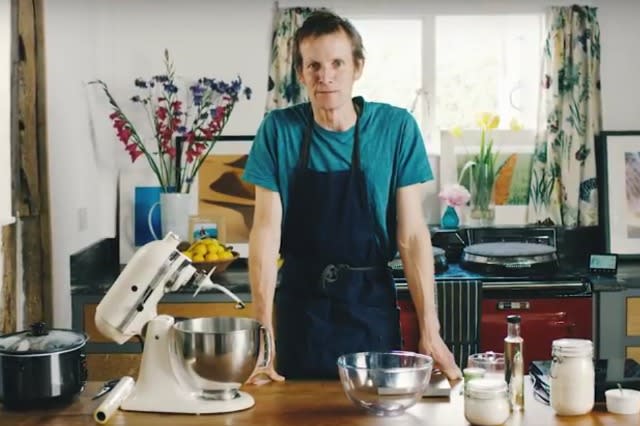Bake Off star reveals the cost cutting solutions you haven't thought of

Bake Off finalist Ian Cumming has finally answered a key dilemma of saving money in the kitchen. If you're supposed to cook everything from scratch in order to save money at the supermarket - how are you supposed to do it without spending a fortune running the oven?
Take baked potatoes, for example, they're a snip in the supermarket, and with a bit of cheese and beans, can feed a family of four for less than £2, but when you have to put them in the oven for an hour, you're burning money - adding up to 20% to the cost of your dinner.
In fact, an electric oven is the most expensive appliance in the home. If you use it for an hour a day, it can easily cost you £2.46 a week or £127.92 a year. Clearly you still stand to save substantially if you cook from scratch - even if you use an electric oven. However, there is an even cheaper option.
Ian's solutions
Ian was given a smart meter in order to work out the cheapest meals to cook from scratch. He tested the energy that various cooking appliances were using, and found that the oven pushed up his costs the most, so he has come up with a number of recipes using alternative approaches.
These include tagines - cooked in a slow cooker, which uses roughly the same energy as a traditional light bulb. This means a meal can be thrown together with a cooking cost of just 5p.
There are also steamed buns - which are far more energy efficient than baked ones, and use around 6p worth of energy; and sponge cakes which can be cooked in the microwave in 90 seconds, at a cooking cost of 2p.
He suggests no-bake solutions like cheesecake, and a salmon macaroni cheese that is grilled instead of baked - cutting the cost of cooking dramatically to 8p.
The recipes are available to download as recipe cards.
Tips anyone can use
If you fancy trying these techniques, you could save substantially. However, even if you are wedded to your traditional cooking approaches, there are some steps suggested by uSwitch that will help you cut your costs.
1. Love your microwave
It's the most energy-efficient cooking method. If you have something like baked potatoes to cook, one sensible option is to start them off in the microwave, and then crisp them up in the oven - which will cut the cost without compromising the texture.
2. Be sensible with your kettle
It's a far more efficient way to boil water than on the hob, so when cooking vegetables, get the water started in the kettle. And, of course, as everyone knows by now, you should only fill it with the water you need.
3. Get a wide-slotted toaster
Toasters are much more efficient than the grill, so get one with wider slots, so you don't need to turn to the grill for things like crumpets, rolls and hot cross buns.
4. Cook in batches
When you use the oven, make sure you use it for as many things as possible at once, then put them in the fridge or freezer later, to heat up in the microwave.
5. Clean the oven door
That way you can check your food without opening the door and letting all the heat out.
6. Clean the hob
It'll be less efficient if it's encrusted with food.
7. Invest in Pyrex or ceramic dishes
They are the most efficient, and can mean you don't need to heat the oven so high.
8. Invest in a steamer
That way you can stack your vegetables in layers on one pan, and only need to use one hob.
9. Turn an electric oven off ten minutes before you finish cooking
It will hold its temperature for long enough to keep cooking until your food is ready.
10. Always use the right size of pan for the food, and the right size of burner for the pan
As much as possible, cook with the lid on, and turn the hob down when you are ready for it to simmer.




